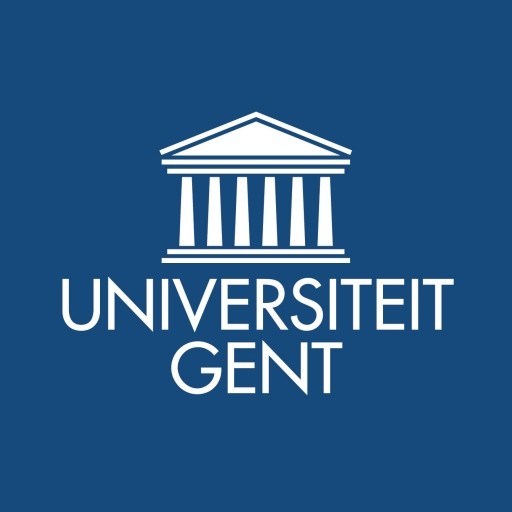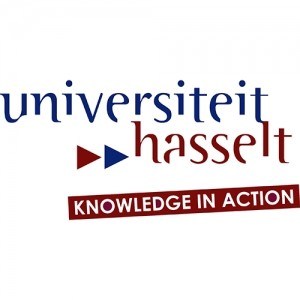Photos of university / #thefoundry_ugent
Marine and Lacustrine Science and Management is a comprehensive interdisciplinary Master’s program offered by Ghent University, designed to equip students with advanced knowledge and practical skills to understand, analyze, and manage aquatic ecosystems. This programme provides an in-depth exploration of the biological, physical, and chemical processes that govern marine and freshwater environments, enabling graduates to address pressing environmental challenges such as pollution, biodiversity loss, climate change, and resource sustainability.
The curriculum combines theoretical courses with practical experiences, including fieldwork, laboratory analysis, and data modeling. Students will study topics such as oceanography, limnology, aquaculture, marine conservation, and environmental management. Emphasis is placed on the application of scientific principles to real-world problems, integrating concepts from ecology, biology, chemistry, and geology. Throughout the programme, students develop critical skills in research methodology, data analysis, and the use of advanced technology for environmental monitoring and assessment.
The program fosters an international perspective, encouraging students to participate in field expeditions and collaborations with leading research institutions worldwide. Graduates will be prepared for careers in environmental consultancy, resource management, policy advising, research, and education, working with governmental agencies, NGOs, or private sector companies focused on aquatic environment preservation and sustainable use.
With state-of-the-art laboratories, climate chambers, and access to extensive field sites along the Belgian coast and inland lakes, students gain hands-on experience that complements their academic learning. The combination of scientific expertise, practical skills, and environmental awareness makes this programme ideal for those passionate about conserving aquatic ecosystems and contributing to sustainable development.
Upon completion, students receive a Master of Science degree, qualifying them for advanced professional roles or further academic research, including PhD studies. The programme’s multidisciplinary approach ensures that graduates are well-equipped to tackle complex environmental issues with innovative and sustainable solutions, making a positive impact on our aquatic habitats and the broader environment.
Core courses
From the courses listed below, students must obtain 36 ECTS
- Oceanography (4 ECTS)
- Estuarine and Coastal Systems (5 ECTS)
- River and lake ecology (5 ECTS)
- Limnology (5 ECTS)
- Law and Ethics on Conservation of Aquatic Systems (3 ECTS)
- In-situ and Remote Sensing Tools in Aquatic Sciences (5 ECTS)
- Environmental Modelling (3 ECTS)
- Seminars: Case Studies on Biodiversity Management (3 ECTS)
- Integrated Marine Coastal Ecology Field Course ( 3ECTS)
Choice 1 Field Courses
Different field courses will be organized from which the student must choose two (3 credits).
From the courses listed below, students must obtain 3 ECTS.
- Integrated Field Course at Sea (3 ECTS)
- Integrated Limnological Field Course (3 ECTS)
Broadening courses
From the courses listed below, students must obtain 12 ECTS
- Governance and Policy in Development and Cooperation Part I (3 ECTS) and Part II (3 ECTS)
- Internship (6 ECTS)
Supporting courses (choose at least 9 credits)
- Data and Information Management (3 ECTS)
- Introduction to GIS (3 ECTS)
- Introduction to Marine and Lacustrine Geology (only in 1Ma) (3 ECTS)
- Introduction to Marine and Lacustrine Biology (only in 1Ma) (3 ECTS)
- Biogeochemistry (3 ECTS)
- Advanced Applied Statistics (3 ECTS)
- Mathematics & Basic Statistics (only in 1Ma) (3 ECTS)
Major (27 + 3* credits):
One major to choose out of 4 specialisations, consisting of 27 ECTS-credits compulsory courses and 3 ECTS-credits
1. Biodiversity and Ecology
- Evolution and Biogeography of Aquatic Organism (3 ECTS)
- Biodiversity of Aquatic Food Webs (3 ECTS)
- Ecology of Coastal Seas (3 ECTS)
- Marine Extreme Systems (3 ECTS)
- Lacustrine Systems (3 ECTS)
- Aquatic Microbial Ecology (6 ECTS)
- Integrated Field Work (6 ECTS)
2. Conservation Biology and Ecosystem Management
- Management of Aquatic Resources: Fisheries (3 ECTS)
- Integrated Coastal Zone Management: Mangroves, Sea-grass Beds and Coral reefs (3 ECTS)
- Tropical Marine Ecology and Restoration (3 ECTS)
- Conservation Genetics of Aquatic Populations (3 ECTS)
- Environmental Impact Assessment (3 ECTS)
- Law of the Sea and Protection of Oceans (3 ECTS)
- Marine Biodiversity and Ecology (6 ECTS)
- Integrated Practicals on Conservation and Management (3 ECTS)
3. Environmental Impact and Remediation
- Environmental Impact Assessment (3 ECTS)
- Aquatic Ecotoxicology and Environmental Monitoring (6 ECTS)
- Ecosystem Based Adaptation to Global Change (6 ECTS)
- Topics on Anthropogenic Impact in Aquatic Ecosystems (3 ECTS)
- Evolutionary and Ecological Physiology (6 ECTS)
- Integrated Practicals (3 ECTS)
4. Marine and Lacustrine Geosciences
- Advanced Sedimentology (6 ECTS)
- Paleobiology of Micro-organisms (6 ECTS)
- Ocean Drilling for Science and Energy (3 ECTS)
- Stable Isotope Geology (6 ECTS)
- Paleoclimatology and Climate Change (6 ECTS)
*3 credits to be selected from one of the Belgian Universities, upon programme agreement
- Master thesis (30 credits)
Requirements
- Applicants must have a Bachelor's degree of minimum 3 years with good overall scores (at least upper second class or equivalent) from a university or recognised equivalent.
- Enrollment fee of Ghent University for academic year 2016-2017 is 890 € for EER-students and students from OESO-DAC-list (developing countries), all other students pay an enrollment fee of 5330 €
- A curriculum vitae
- A diploma of secondary or higher education where English was the language of instruction
- Having successfully completed at least one school year of secondary education where English was the language of instruction
- Having successfully completed course units in higher education with a minimum total of 54 study credits where English was the language of instruction
- Having successfully completed ASO secondary education in Belgium
- Having successfully completed one of the following language tests
- TOEFL: 213 computer-based, 80 internet-based
- IELTS: minimum level academic module 6,5
- Cambridge Certificate of Advanced English (CAE), grade B
- Cambridge Certificate of Proficiency in English (CPE), grade C
Scholarships
- VLIR-UOS scholarships
- Ghent University Master grants
- OFID Scholarship Award for International Students
The Master of Science in Marine and Lacustrine Science and Management at Ghent University offers a comprehensive and multidisciplinary curriculum designed to prepare students for careers in aquatic sciences, environmental management, and sustainable resource utilization. This program emphasizes the understanding of marine and freshwater ecosystems, their ecological dynamics, and the human impact on these environments. Students will develop expertise in areas such as aquatic ecology, oceanography, limnology, conservation policies, and sustainable management strategies. The program encourages the application of scientific principles to real-world challenges, including climate change, biodiversity loss, pollution, and resource management. Students have opportunities for practical training through fieldwork, laboratory analysis, and internships, which are integral parts of the curriculum. The program collaborates with various research institutes and provides access to state-of-the-art facilities for data collection and analysis. Graduates are equipped with the analytical skills and ecological knowledge necessary for roles in research, policy advising, environmental consultancy, and management positions in governmental agencies, NGOs, or private enterprises. The interdisciplinary nature of the program combines biological, physical, and social sciences, fostering a holistic approach to understanding and solving aquatic issues. Students may choose specialization tracks or elective courses aligned with their interests, such as marine conservation, aquatic resource management, or limnology. Overall, the program aims to contribute to the sustainable use and preservation of aquatic environments worldwide, supporting students in becoming active contributors to environmental science and management.



